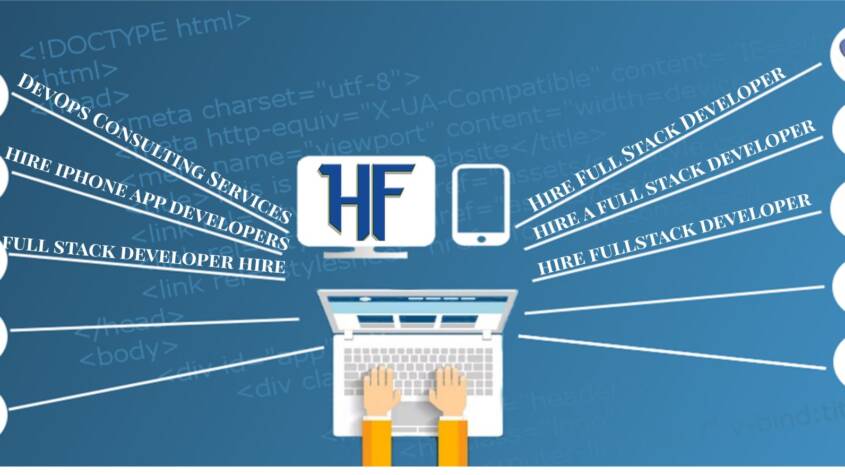
Custom web application development in India has become a preferred choice for businesses worldwide due to its ability to deliver scalable, secure, and tailored digital solutions. With over two decades of expertise, Indian developers combine advanced technologies and industry knowledge to build applications that align closely with unique business needs.
Companies in India specialize in creating custom web apps that enhance efficiency, improve customer engagement, and support business growth through flexible and innovative design. Their experience spans diverse sectors, ensuring solutions that integrate smoothly with existing systems while keeping security and performance intact.
The growing demand for digital transformation has encouraged more businesses to seek Indian development teams known for technical skill and cost-effectiveness. This trend reflects a balance of quality and affordability, making custom web application development a strategic investment for businesses aiming to stay competitive.
Custom Web Application Development Services in India
Custom web application development in India focuses on creating tailored solutions to meet specific business needs. It involves the design, programming, and deployment of scalable and secure applications using industry-standard tools and methodologies. These services emphasize precision in understanding client requirements, proper technology selection, and maintaining high quality throughout development.
Types of Custom Web Applications Offered
Indian companies develop a wide range of custom web applications, including e-commerce platforms, content management systems (CMS), customer relationship management (CRM) tools, and enterprise resource planning (ERP) systems. They also build progressive web apps (PWAs) and single-page applications (SPAs) for enhanced user experiences.
Applications are designed to be scalable, integrating seamlessly with third-party services like payment gateways or APIs. Solutions often address various industries such as retail, healthcare, finance, and education, ensuring functionality specific to each sector’s demands.
Core Technologies and Frameworks
Development teams leverage both front-end and back-end technologies to build robust applications. Common front-end frameworks include React.js, Angular, and Vue.js, enabling responsive and interactive user interfaces.
On the back end, developers typically use Node.js, Python (Django, Flask), Java (Spring Boot), and PHP (Laravel) to handle business logic and database management. Databases like MySQL, MongoDB, and PostgreSQL support data storage needs.
Cloud platforms such as AWS and Azure are often employed for deployment, ensuring scalability and availability.
Process of Requirement Analysis and Planning
The development process begins with a comprehensive requirement gathering phase. Developers conduct detailed discussions with clients to understand business objectives, workflows, and target users.
This is followed by feasibility studies and setting clear project goals. Planning includes defining the technical architecture, timelines, and resource allocation.
A detailed project roadmap or specification document is created to guide the development, ensuring transparency and alignment with client expectations throughout the process.
Quality Assurance and Testing Standards
Quality assurance teams implement rigorous testing at multiple stages of development. This includes functional testing, performance testing, security audits, and cross-browser compatibility checks.
Automation tools like Selenium or Jest may be used alongside manual testing to ensure reliability and minimize defects.
Testing aims to identify and fix bugs early, validate usability, and confirm that the application meets performance benchmarks. Maintaining these standards helps deliver stable, secure, and user-friendly web applications.
Selecting the Right Indian Development Partner
Choosing a development partner involves carefully assessing their skills, pricing structures, and communication style. Each of these aspects directly affects project success and delivery timelines.
Evaluating Technical Expertise
It is essential to verify the company’s proficiency in the required technologies, frameworks, and tools. Reviewing their portfolio and case studies helps confirm their ability to handle projects similar in scope and complexity.
The team’s experience with scalable, secure, and feature-rich web applications should align with the business’s objectives. Certifications, client testimonials, and in-depth technical discussions provide insights into their expertise.
Additionally, knowledge of emerging trends and adherence to quality standards set top Indian developers apart from the competition. Checking their approach to testing and post-launch support is also crucial.
Cost Factors and Engagement Models
Pricing transparency and flexibility in engagement models are vital. Most Indian companies offer fixed-price, time-and-material, or dedicated team models, each suited to different project needs.
Comparing cost estimates must consider not only hourly rates but also deliverables, revision policies, and potential hidden charges. Lower costs do not always guarantee better value; balance cost with quality.
Engagement models should align with project scope and communication preferences. For evolving projects, flexible time-and-material models allow easier adjustments, while fixed-price models suit well-defined requirements.
Collaboration and Communication Practices
Effective communication ensures the project stays on track and avoids misunderstandings. Assessing a partner’s response time, communication channels, and project management tools clarifies how progress will be monitored.
Time zone compatibility facilitates synchronous meetings, while English fluency is essential for clear instructions and feedback. Regular updates, demos, and milestone reviews demonstrate a collaborative approach.
A partner willing to adapt processes to client preferences often delivers smoother project execution. Transparent reporting and proactive issue resolution reflect professionalism and commitment.
Ecommerce SEO Packages for Enhanced Online Store Visibility and Growth
Ecommerce SEO packages are designed to help online stores improve their search engine rank…







